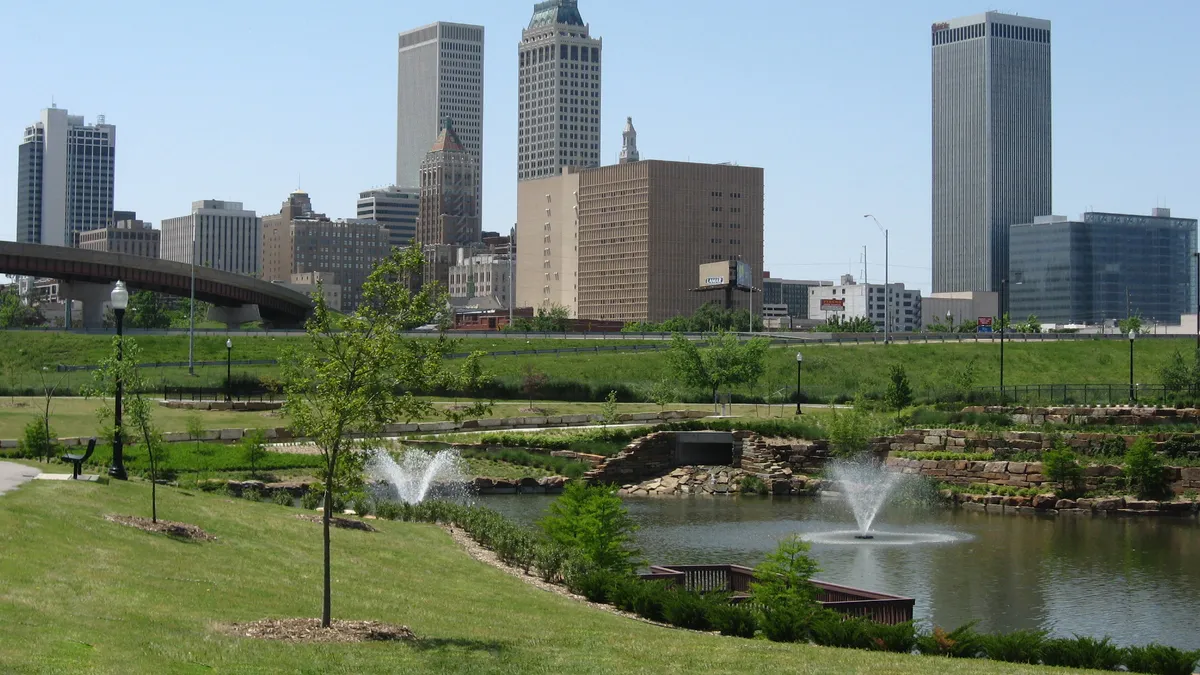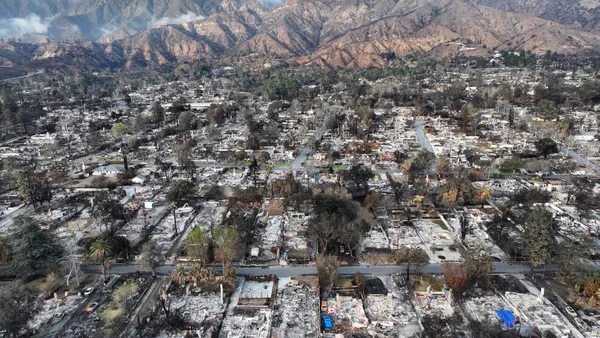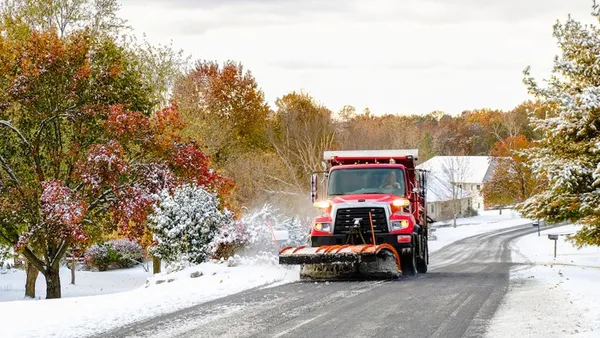Dive Brief:
- A first-of-its-kind survey by polling company Gallup has found that a majority of residents of Tulsa, OK are optimistic the city is becoming more livable, while they also believe access to basic needs like food and health care must improve.
- The 2018 Gallup-Tulsa Citivoice Index found that 47% of the 4,500 Tulsa residents surveyed believe the city is getting better, compared to 24% that do not. Of those surveyed, 31% said at some point over the last year they did not have enough money to buy food, while 36% said they did not have enough money to afford health care.
- The survey focused on three primary themes: access to basic needs and services; residents’ views of Tulsa as a place to live and work in; and how residents feel local institutions and organizations contribute to the community.
Dive Insight:
Tulsa Mayor G.T. Bynum has previously noted that traditional surveys often reveal little other than general conclusions. "In the past, if you were looking at what citizens want, you'd end up with a broad generalization,” he said. “We've done this in the past. Previous mayors would do a citizens’ survey and hire a political pollster to go out and come back and tell us that everybody thinks the mayor is doing an awesome job.”
This survey may offer more useful results. Gallup explained its methodology, noting how data was collected from 4,428 mail-in surveys to Tulsa's adult populations. That data was compared to data from peer cities, as well as the U.S. and Oklahoma, using historical data from the Gallup-Sharecare Well-Being Index.
And the findings have concrete implications. For example, the survey shows that white Tulsans have a much higher trust in the city’s police department, compared to trust levels among the city’s black residents. With black residents making up around just 8% of Tulsa’s population, their opinions might have been overshadowed, but this more granular data-driven survey means city leaders can see how different groups feel about different areas of civic life.
“[Black residents’ views] would have been drowned out in the overall notion of the city,” Bynum said. “But because we've done the work of doing a deeper dive, we can see that we have work to do in improving trust and community building and relationships between Tulsa's African-American community and our police department.”
The results from the survey should give city leaders plenty to work on. Another major takeaway is that 50% of Tulsa residents are classified as thriving, while 46% are struggling and 4% are suffering, according to Gallup’s life evaluation ratings scale. Gallup found fewer residents in Tulsa are "thriving" compared to all peer cities, as well as state and national totals. This represents a challenge and a priority for Bynum, who pledged to improve this during the recent State of the City address.











